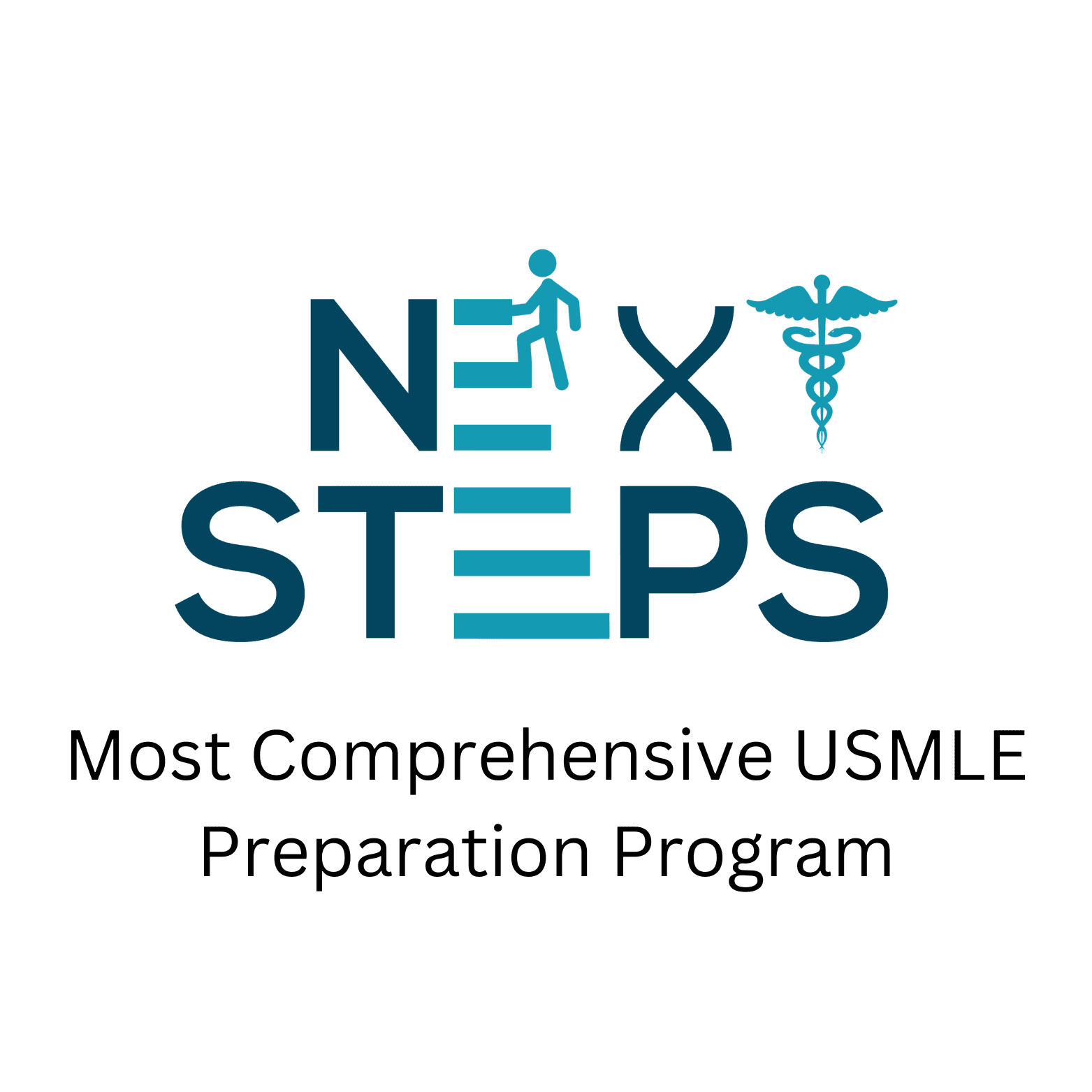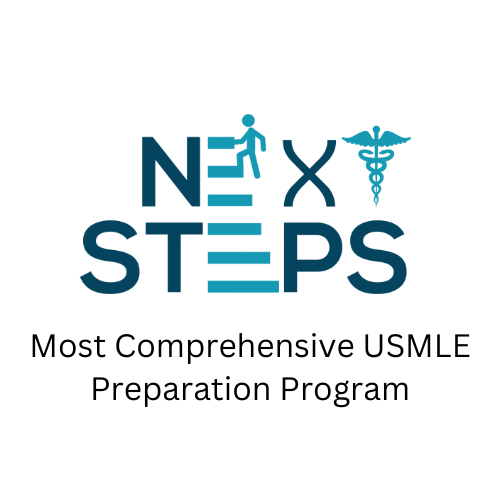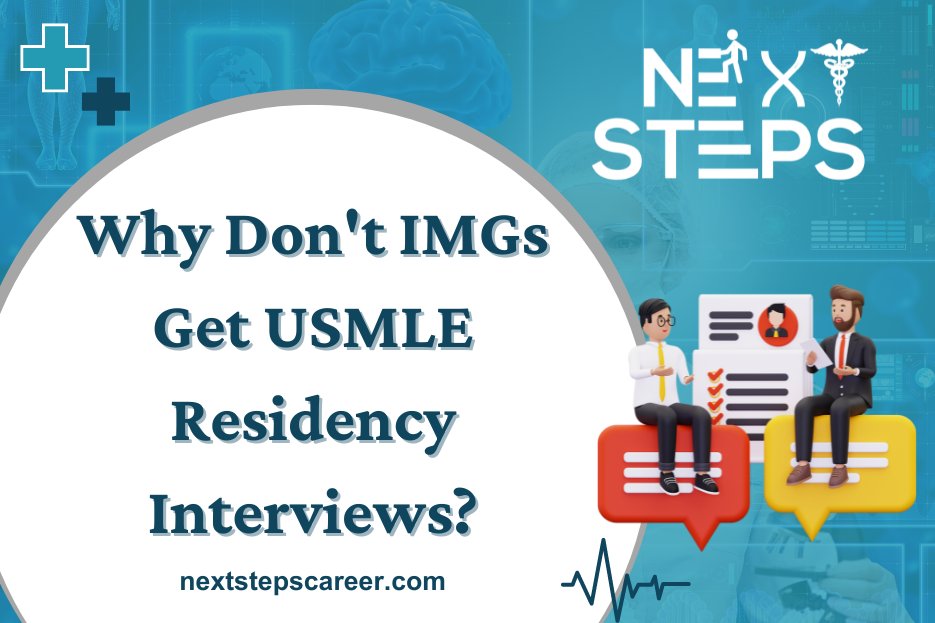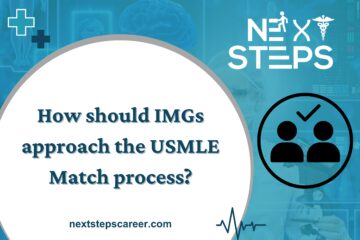Securing a residency spot in the United States is a highly competitive process, especially for International Medical Graduates (IMGs). Despite their qualifications and dedication, many IMGs face significant challenges in obtaining residency interviews. Understanding the reasons behind this can help IMGs better prepare their applications and improve their chances of success. This blog will explore some of the key factors that can affect an IMG’s ability to secure USMLE residency interviews and offer strategies to overcome these obstacles.
1. USMLE Scores
High Expectations: USMLE Step 1 and Step 2 CK scores are critical components of the residency application. Many residency programs use these scores as an initial screening tool to filter applicants.
Competitive Scores: IMGs often need to achieve higher scores compared to U.S. medical graduates to stand out. Programs may have cut-off scores, and failing to meet these thresholds can result in automatic rejection.
Strategy: Focus on achieving high scores by preparing thoroughly for the exams. Use high-yield resources like UWorld, First Aid, and Pathoma, and consider taking a preparatory course through the Next Steps Mentoring App.
2. Clinical Experience in the U.S.
Lack of USCE: U.S. Clinical Experience (USCE) is highly valued by residency programs. It demonstrates your familiarity with the U.S. healthcare system and your ability to adapt to its clinical environment.
Observerships vs. Hands-On Experience: While observerships are beneficial, hands-on clinical experience such as externships or clerkships is more valuable.
Strategy: Seek out opportunities for hands-on USCE early in your medical education. This can include externships, clerkships, or volunteer positions in U.S. hospitals. Strong letters of recommendation from U.S. physicians can also bolster your application.
3. Residency Application Timeline
Late Applications: Applying late in the residency cycle can significantly reduce your chances of securing interviews. Programs often review applications on a rolling basis and may have already extended interview invitations by the time late applications are submitted.
Strategy: Ensure that all components of your application, including USMLE scores, letters of recommendation, and personal statements, are ready well before the application deadline. Aim to submit your application as early as possible.
4. Quality of Personal Statement and CV
Generic Personal Statements: A generic or poorly written personal statement can weaken your application. Program directors seek applicants who can articulate their passion for the specialty and explain why they are a good fit for the program.
Strategy: Write a compelling personal statement that highlights your unique experiences, motivations, and strengths. Tailor each statement to the specific program you are applying to. Similarly, ensure your CV is well-organized, concise, and free of errors.
5. Letters of Recommendation
Weak or Irrelevant Letters: Letters of recommendation that are not strong or relevant to the specialty you are applying for can negatively impact your application.
Strategy: Request letters from physicians who know you well and can speak to your clinical skills, work ethic, and suitability for the specialty. Preferably, these should be from U.S. physicians if you have USCE.
6. Visa Status
Visa Sponsorship: Some programs are hesitant to sponsor visas for IMGs due to the additional administrative burden and potential delays. This can limit the number of programs that are willing to consider IMG applications.
Strategy: Research programs to identify those that are IMG-friendly and have a history of sponsoring visas. Consider applying broadly to maximize your chances.
7. Communication Skills
Language Barriers: Proficiency in English, both spoken and written, is crucial. Poor communication skills can be a significant drawback, especially in interviews and clinical settings.
Strategy: Improve your English language skills through practice and, if necessary, formal language courses. Strong communication skills can help you perform better in interviews and clinical rotations.
8. Residency Program Preferences
Preference for U.S. Graduates: Some programs have a preference for U.S. medical graduates due to familiarity with their training and education systems. This bias can make it more challenging for IMGs to secure interviews.
Strategy: Focus on applying to IMG-friendly programs. These are programs known for accepting and valuing international graduates. Use resources like the NRMP Match Data and forums to identify such programs.
9. Gaps in Education or Clinical Experience
Unexplained Gaps: Gaps in your medical education or clinical experience can raise red flags for program directors.
Strategy: If you have gaps, be prepared to explain them in your application and interviews. Highlight any productive activities undertaken during these periods, such as research, additional training, or volunteer work.
Conclusion
While IMGs face unique challenges in securing USMLE residency interviews, understanding these hurdles is the first step toward overcoming them. By focusing on high USMLE scores, gaining substantial USCE, crafting a strong application, and targeting IMG-friendly programs, IMGs can improve their chances of securing interviews and matching into residency programs. Persistence, preparation, and strategic planning are key to navigating the competitive residency application process successfully. Good luck on your journey to becoming a resident physician in the U.S.!





